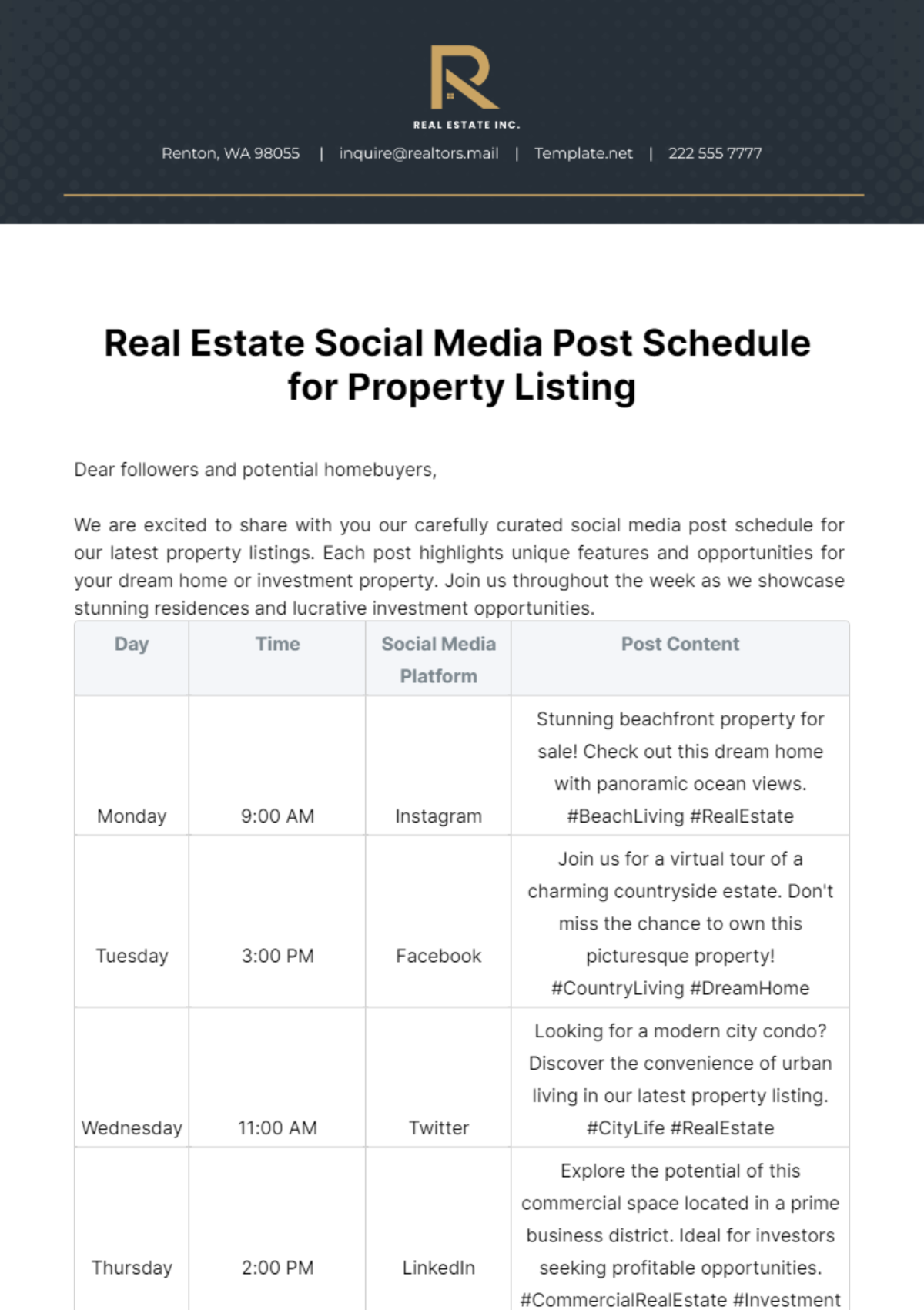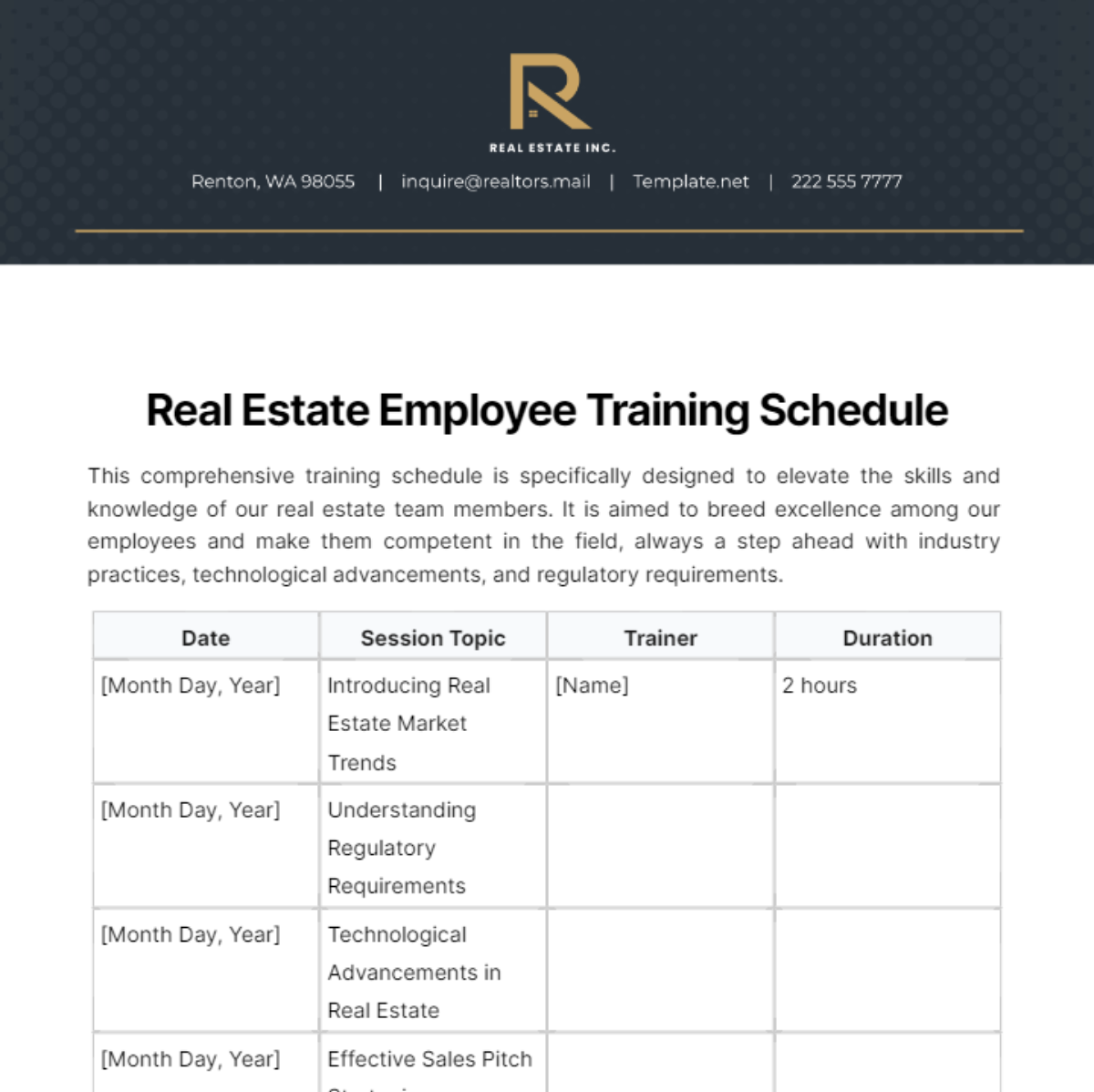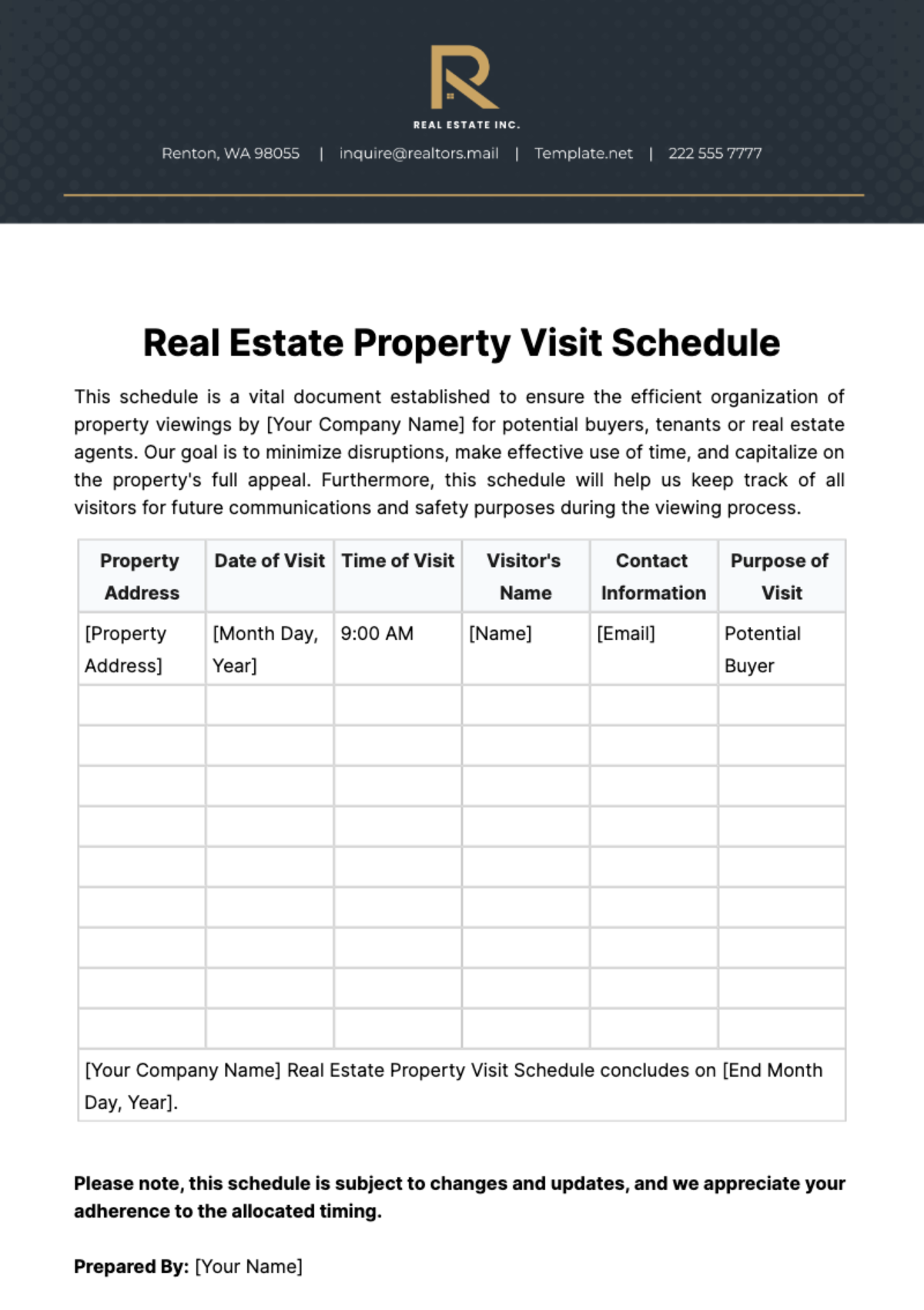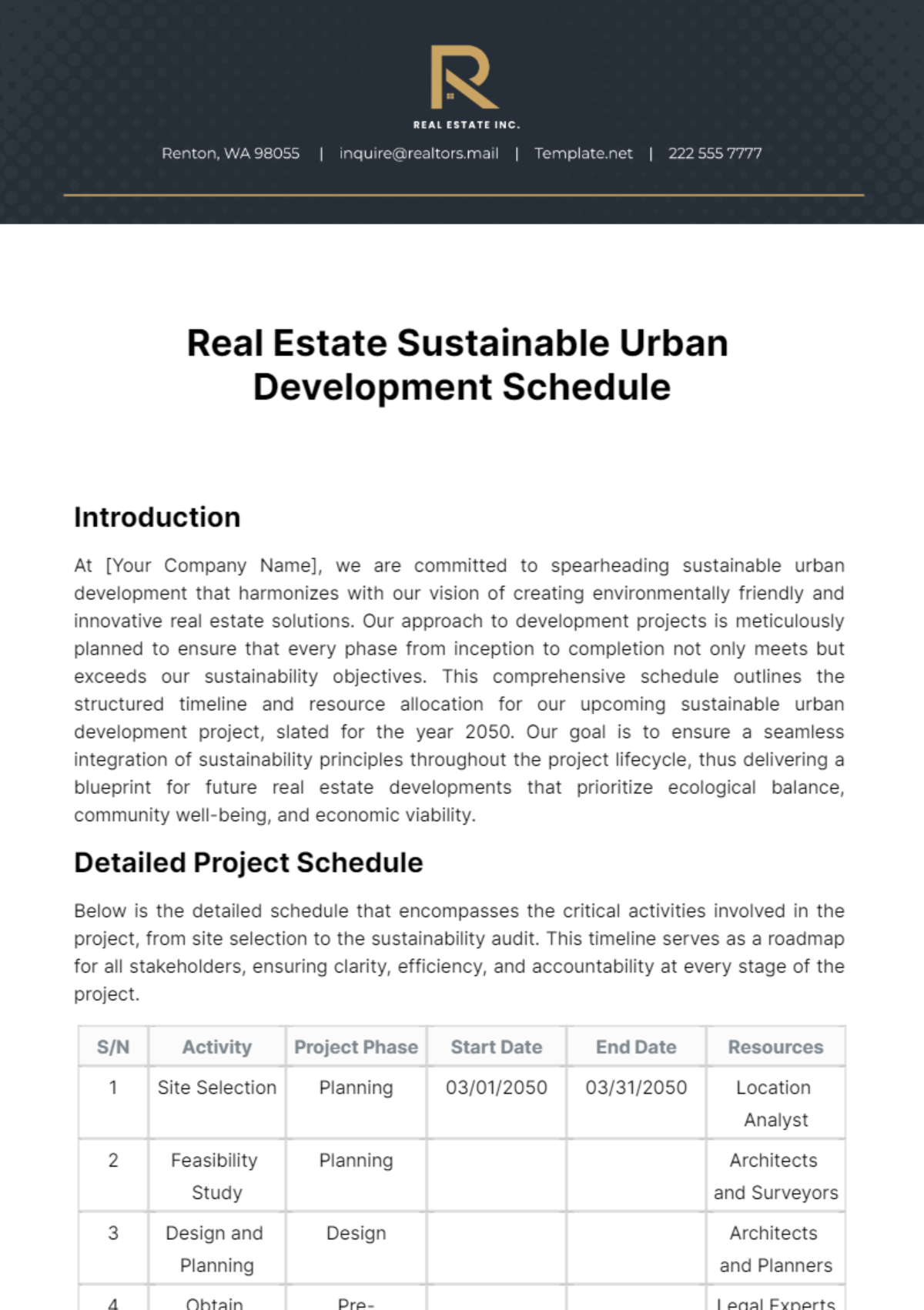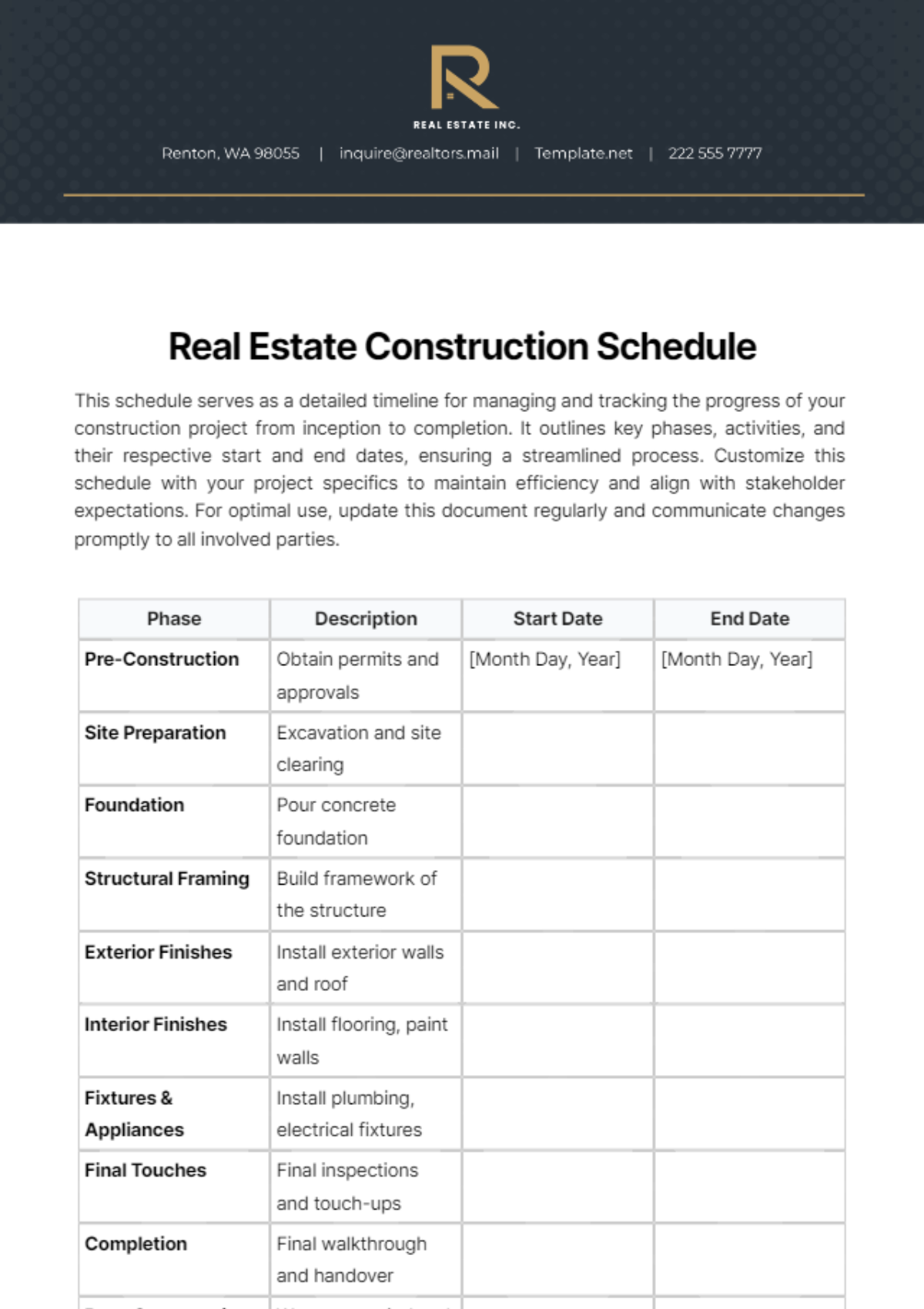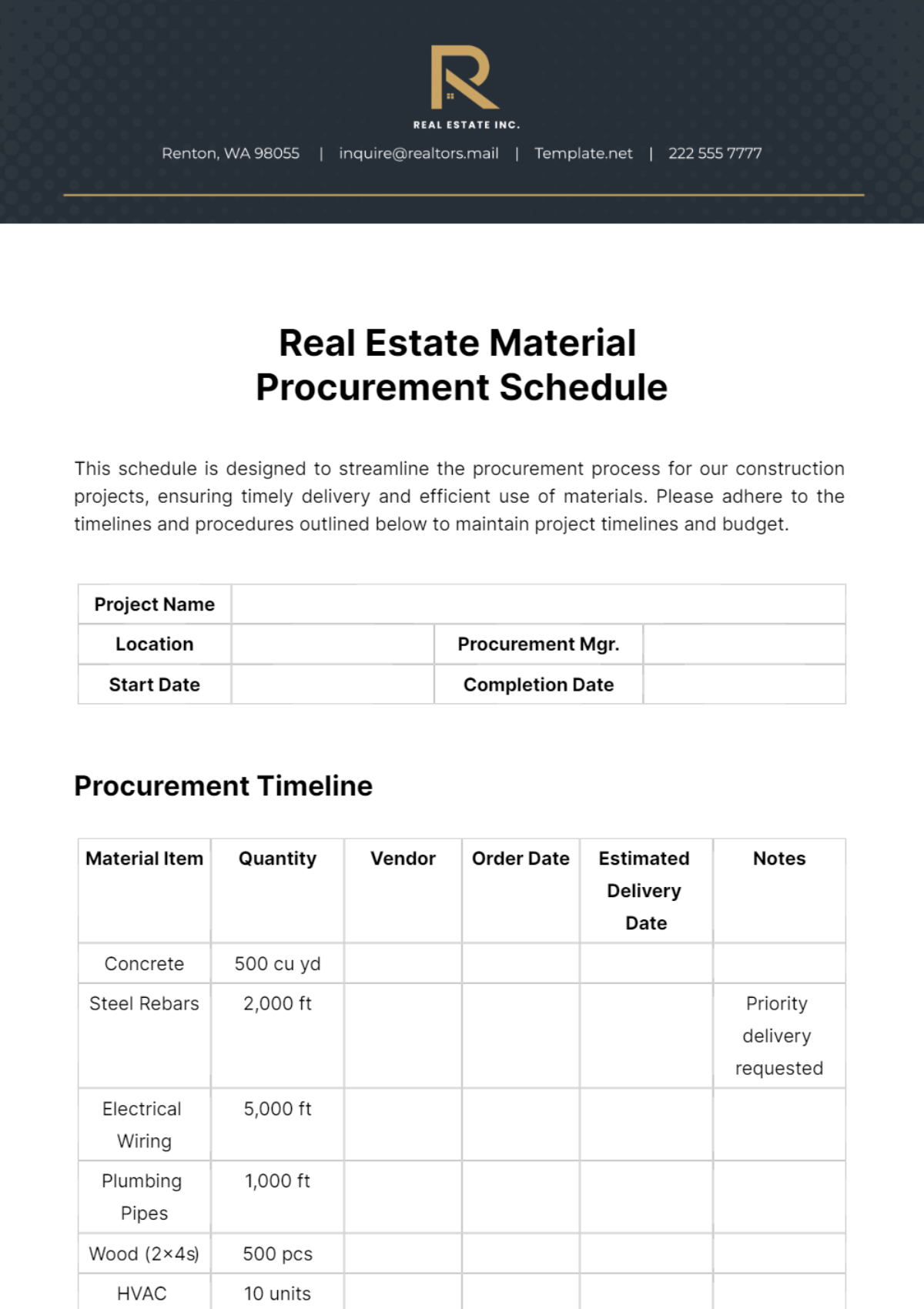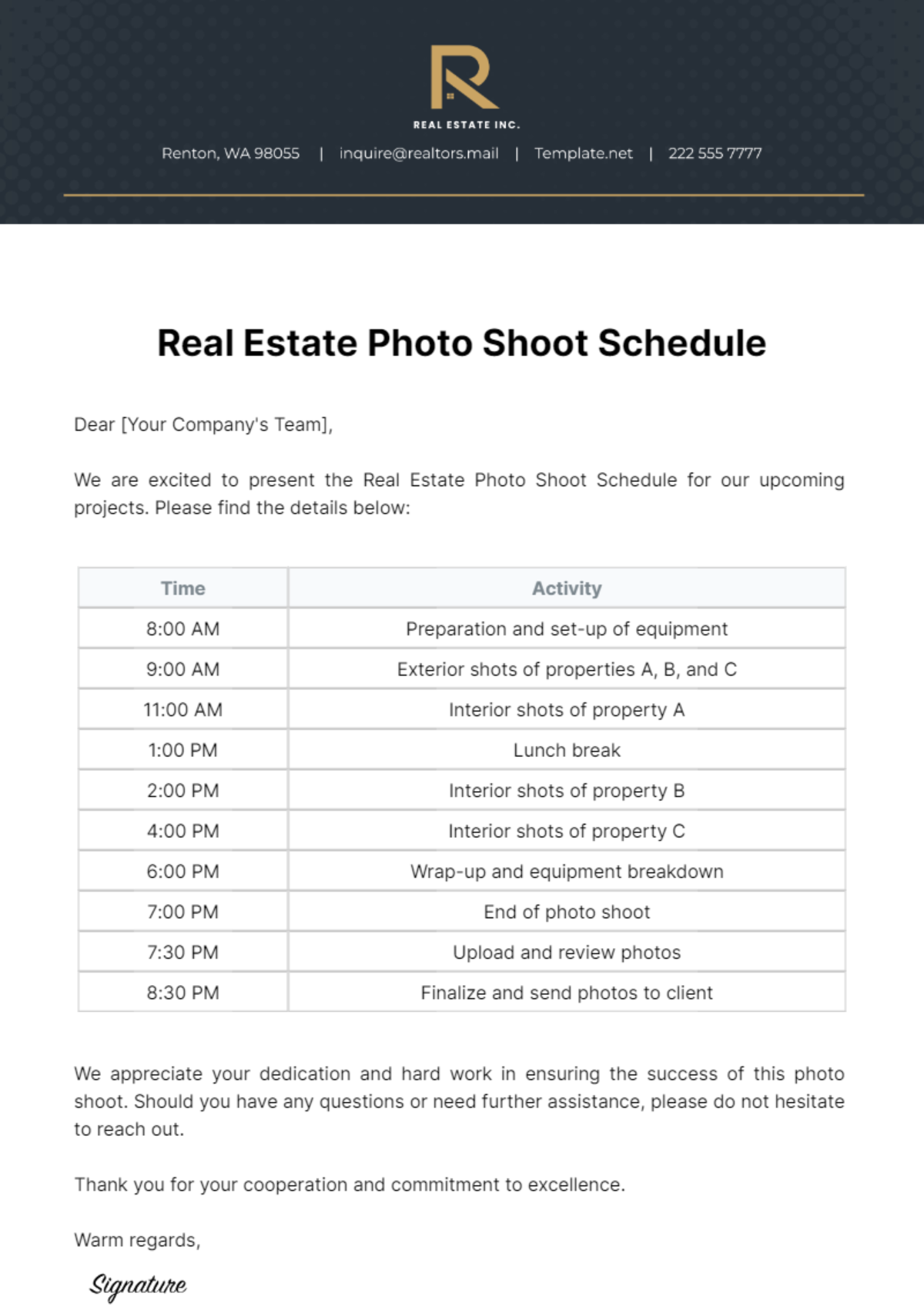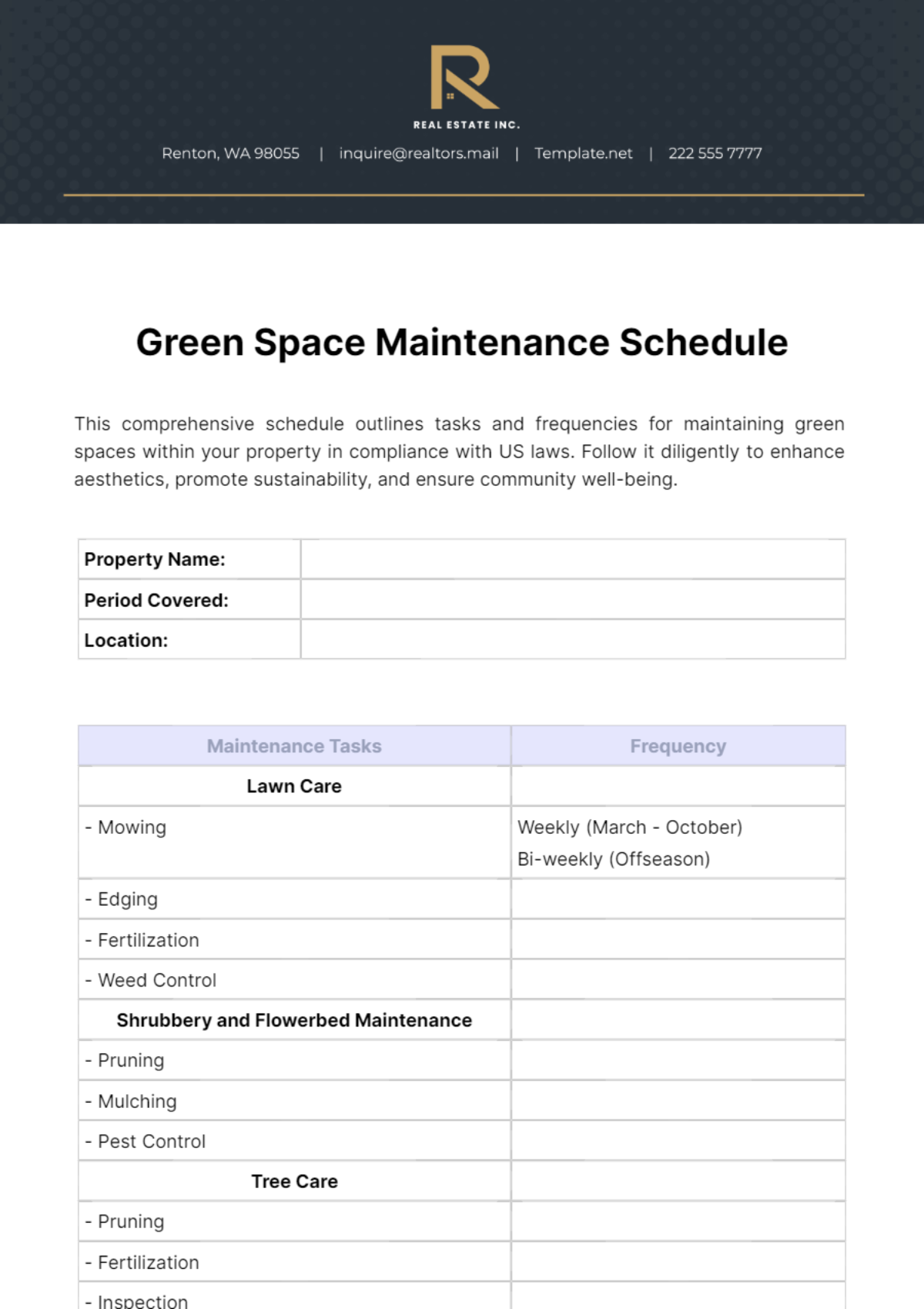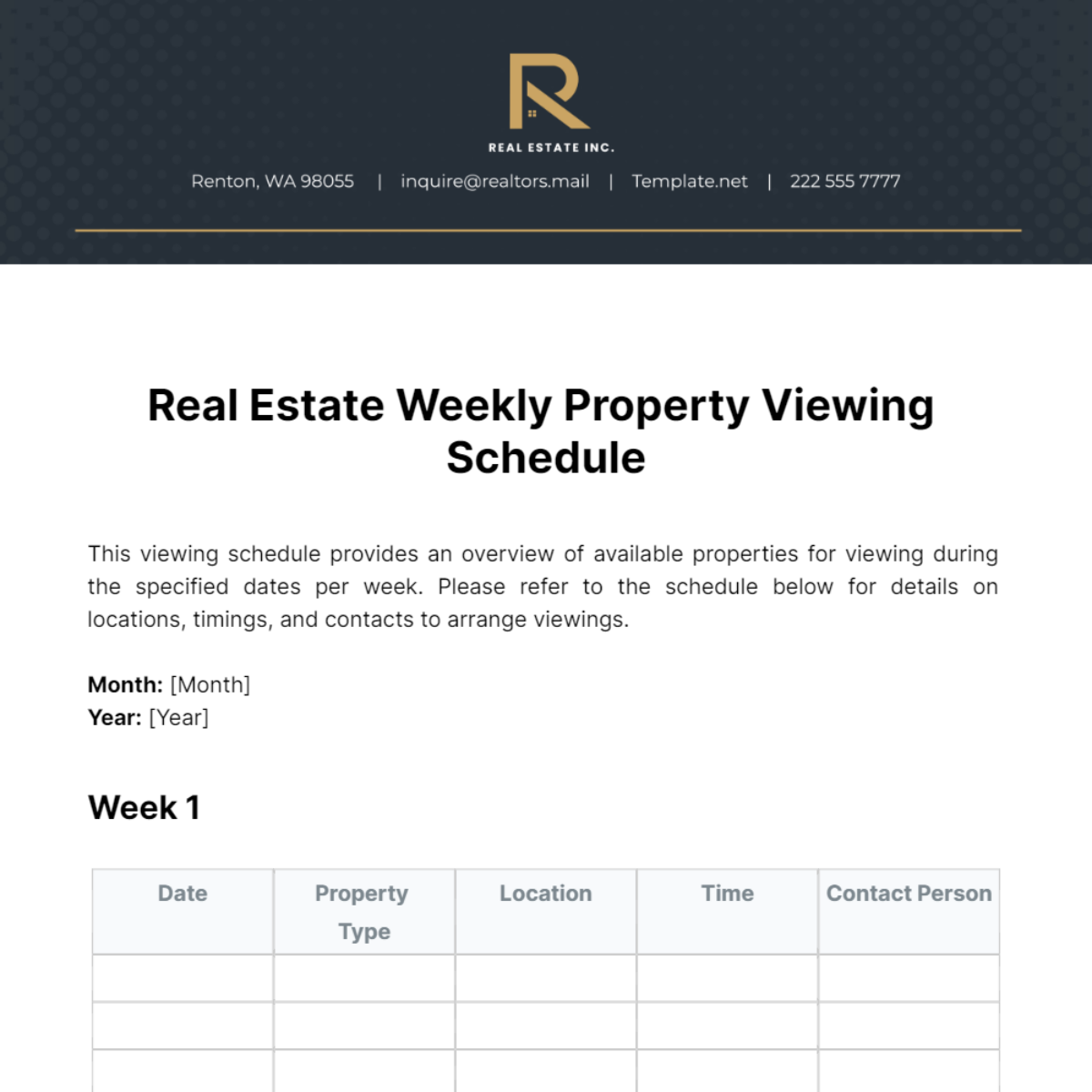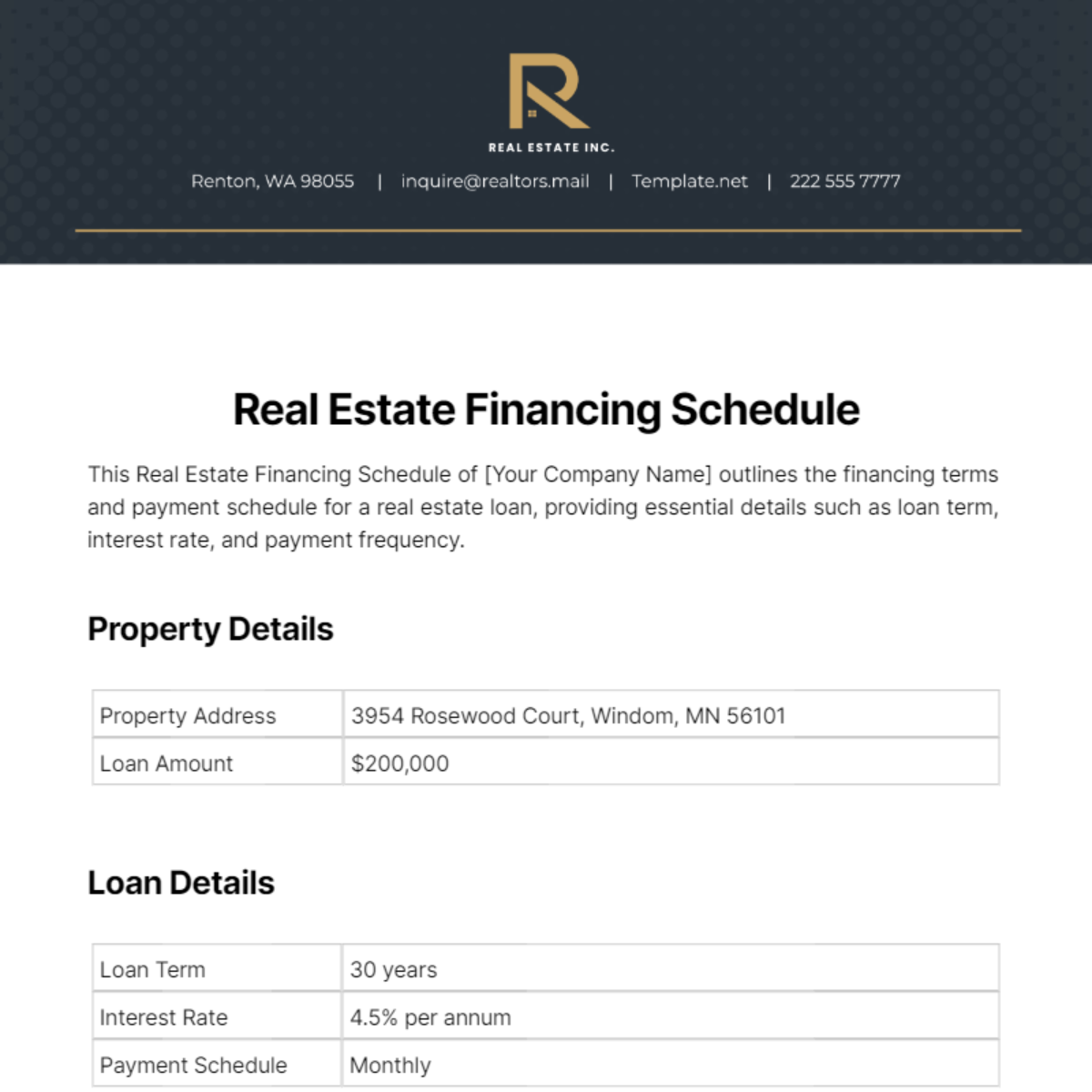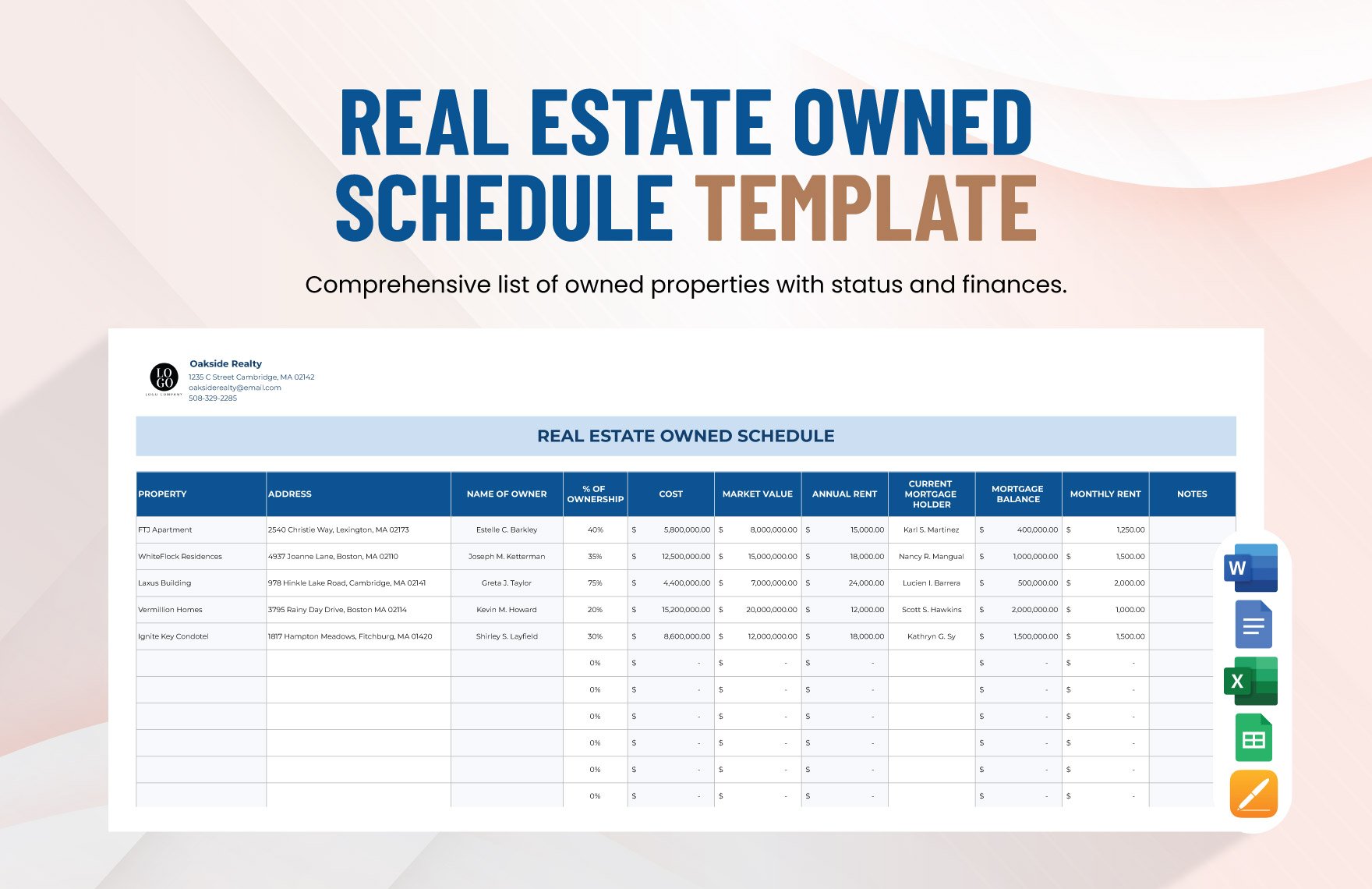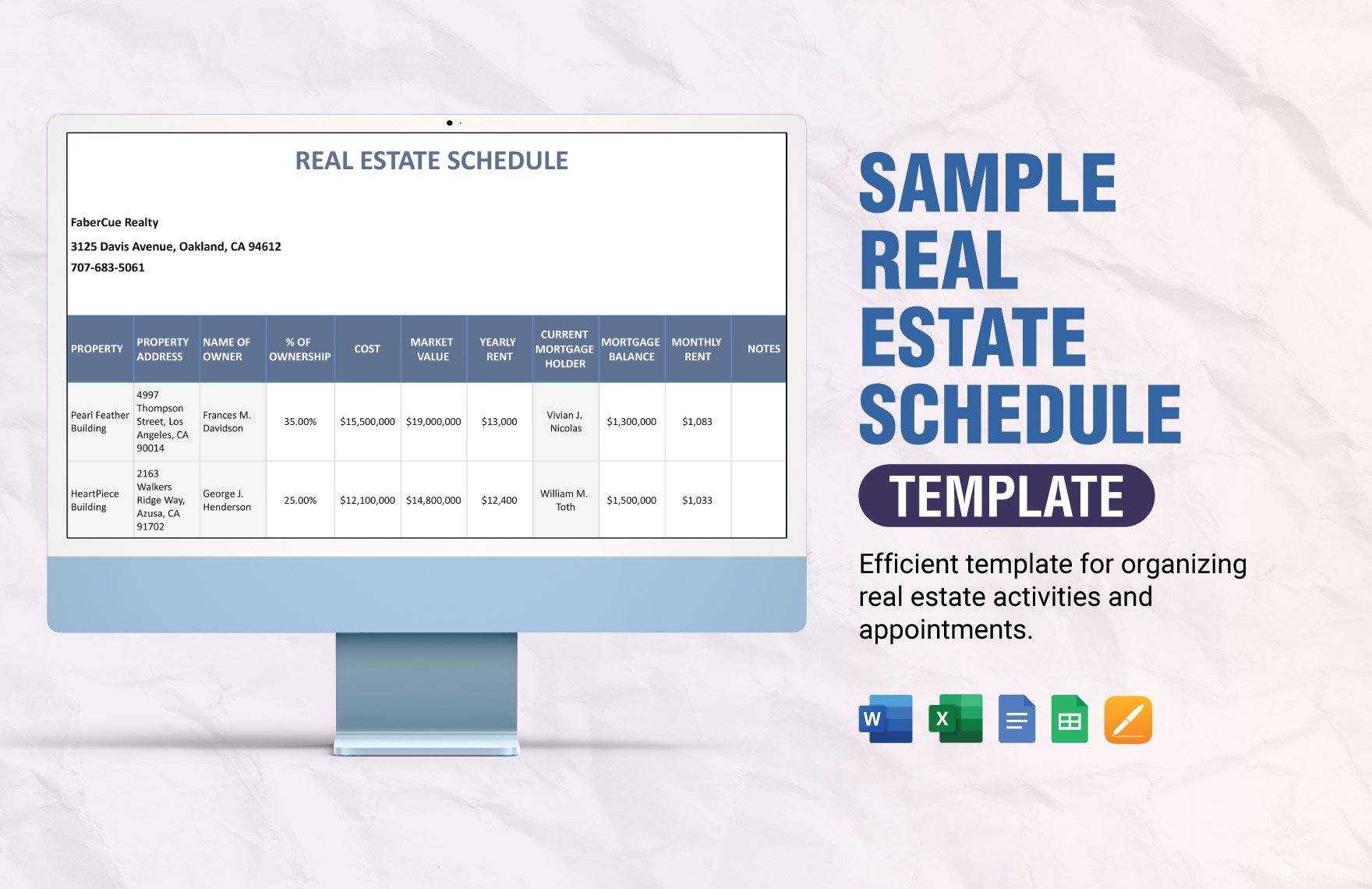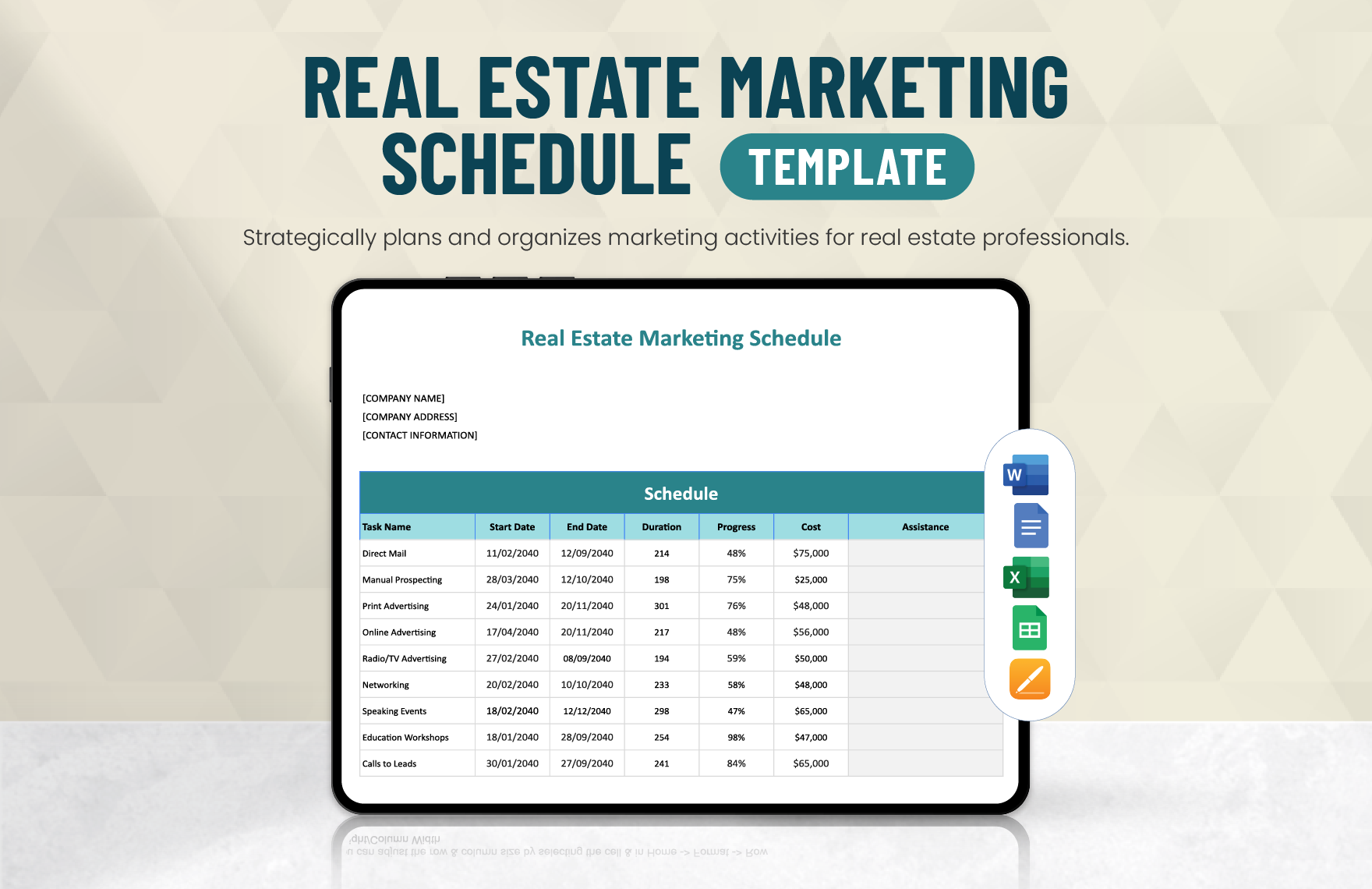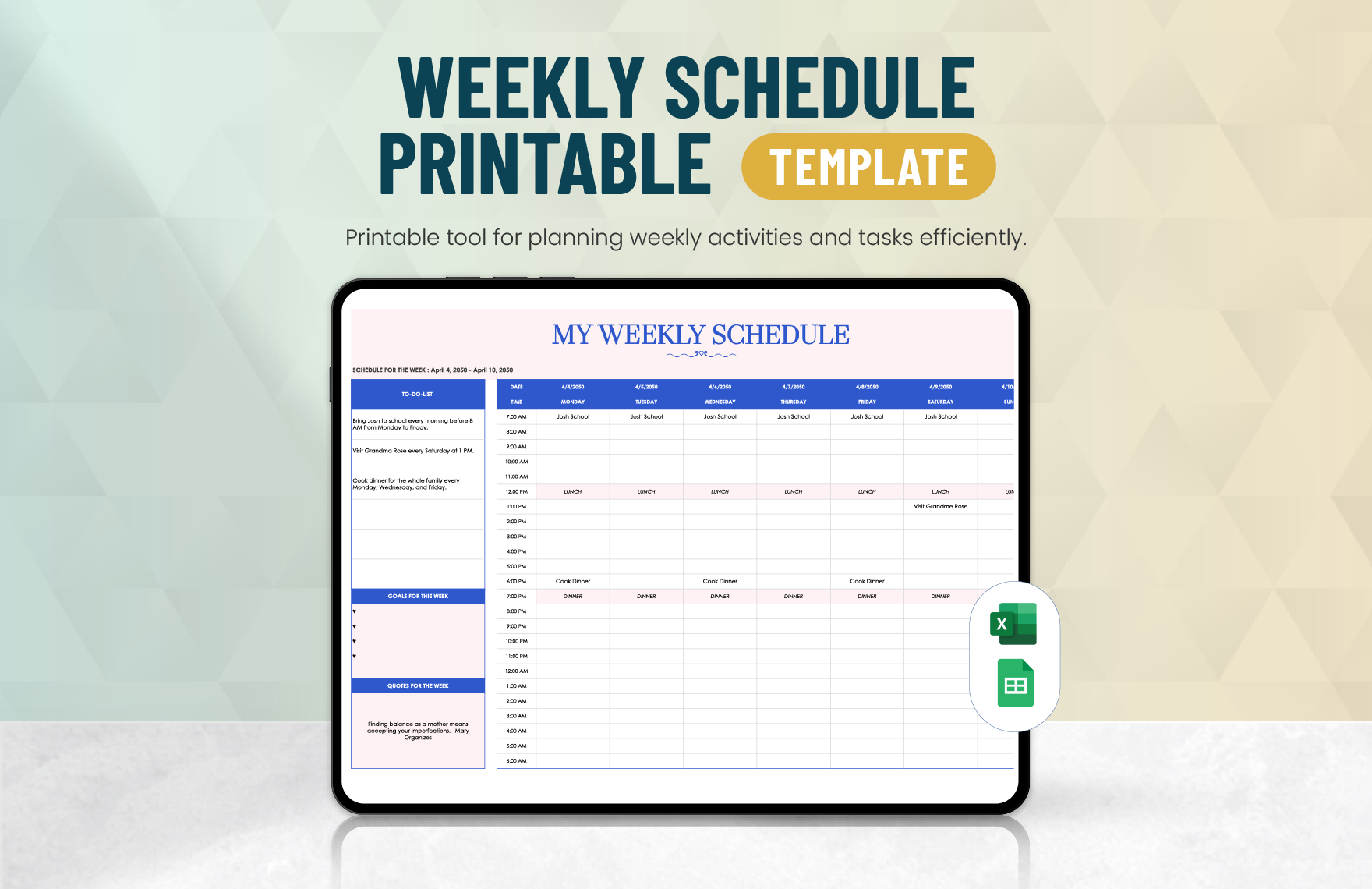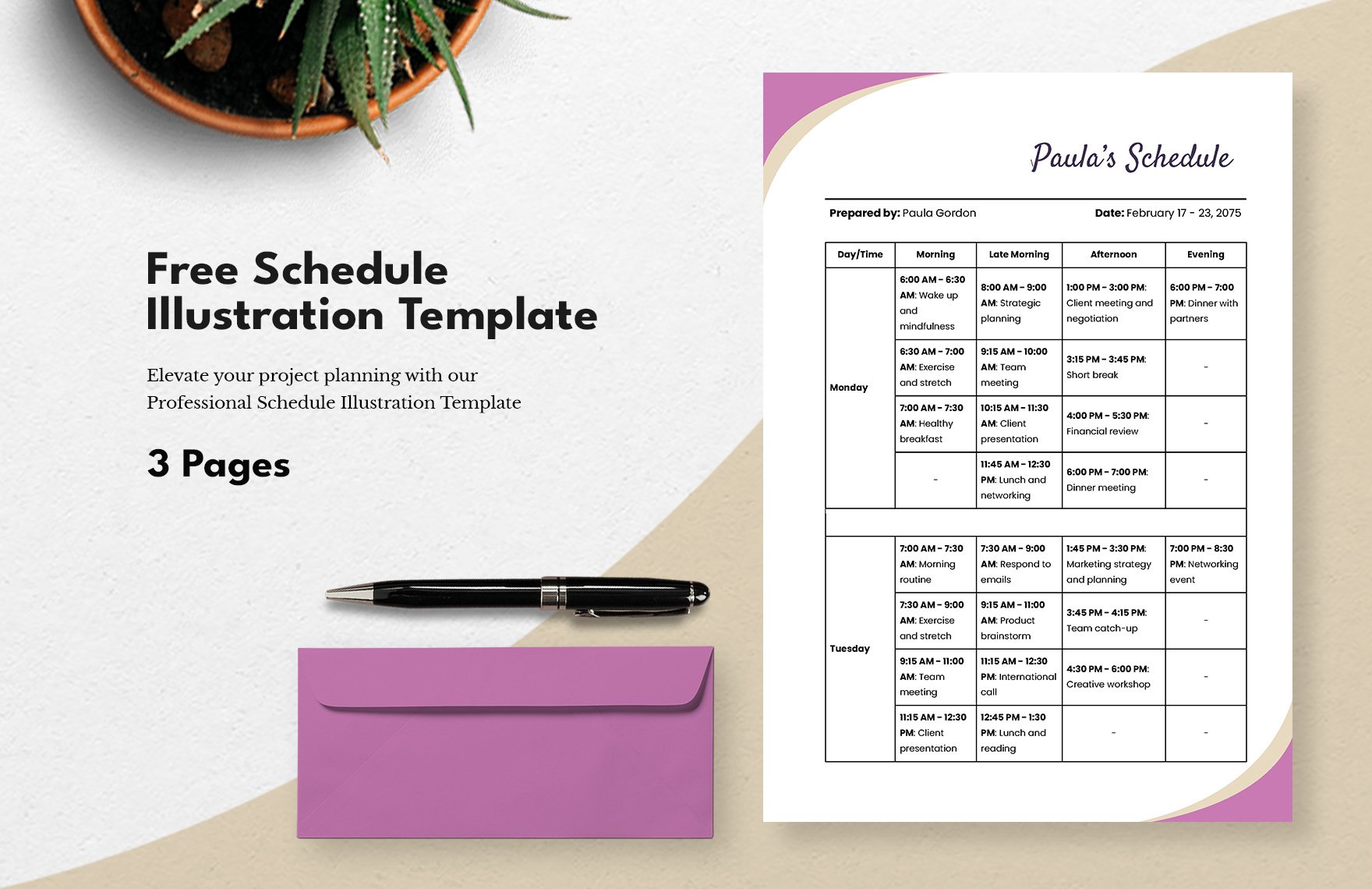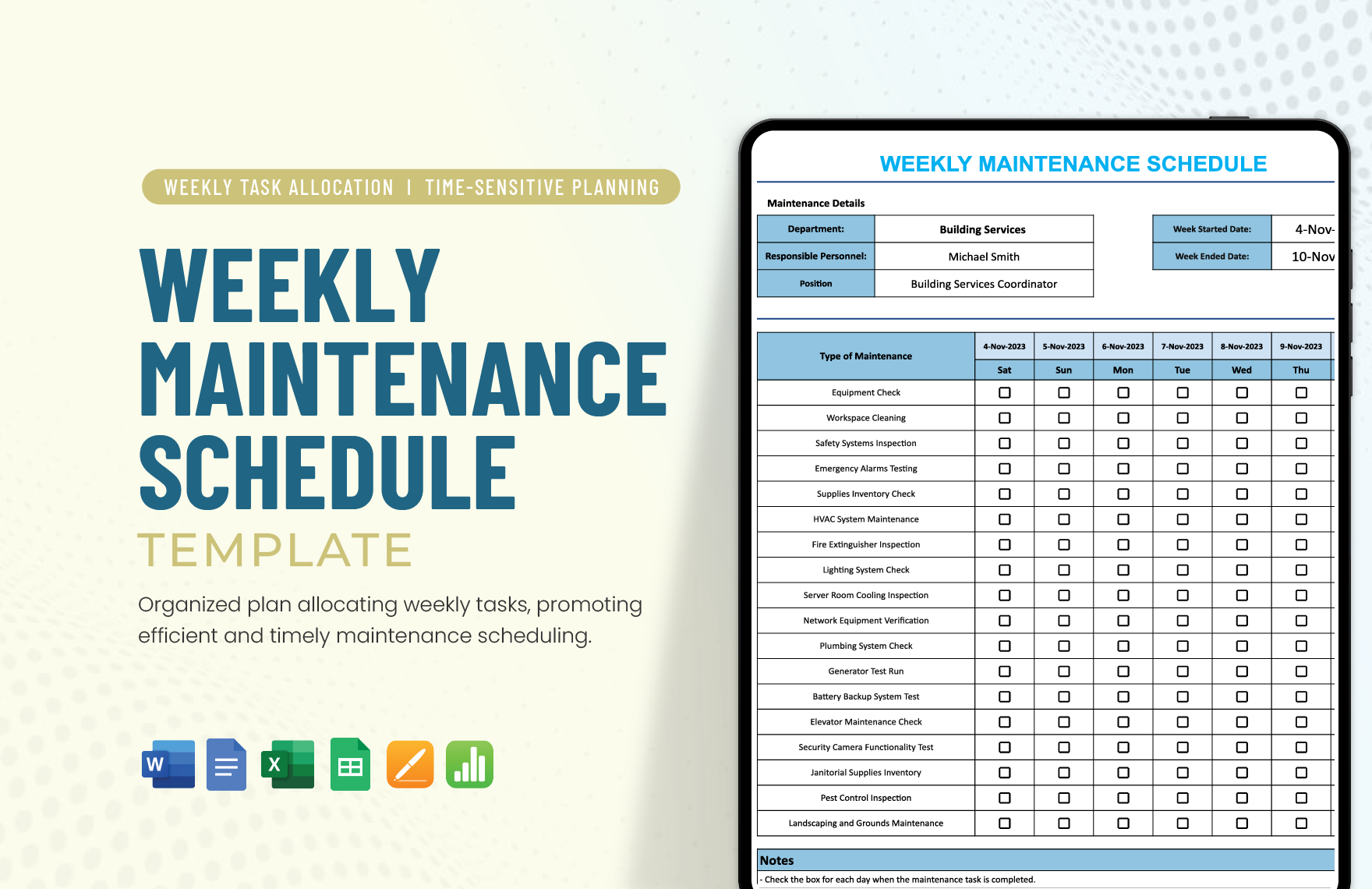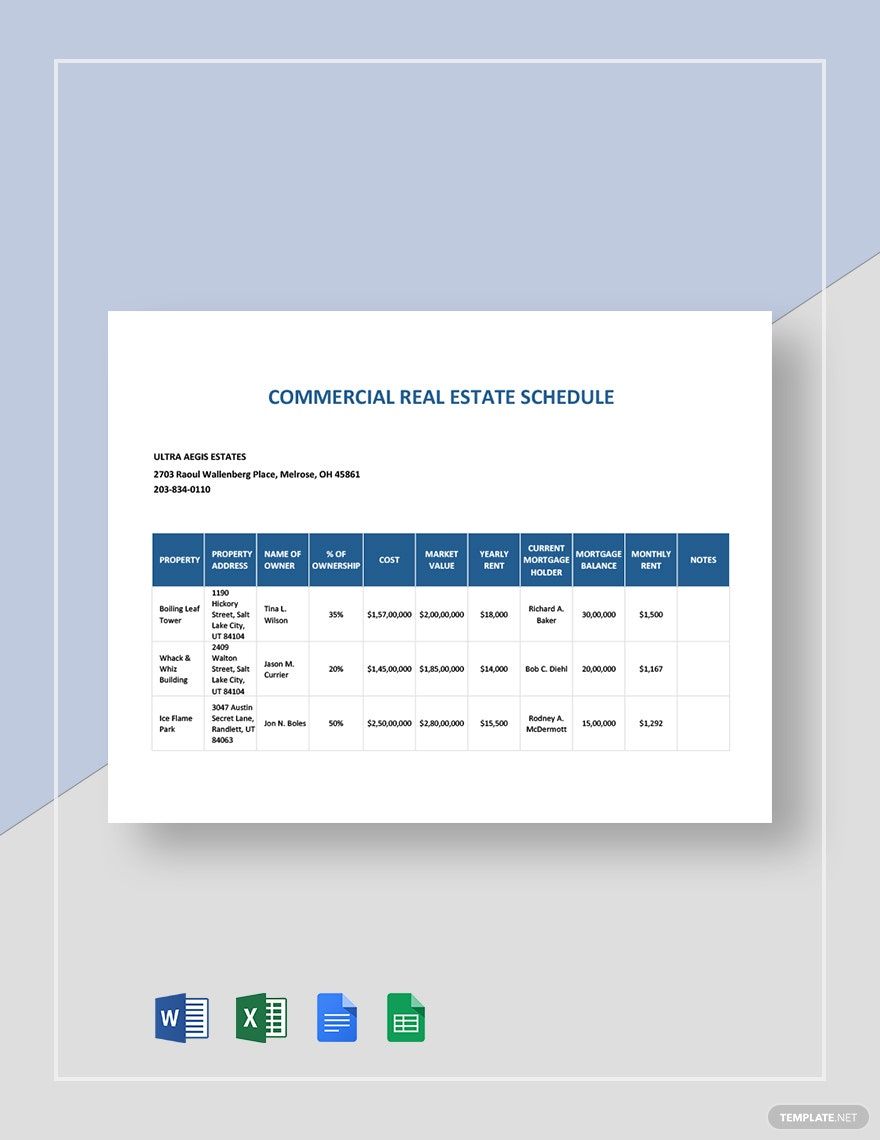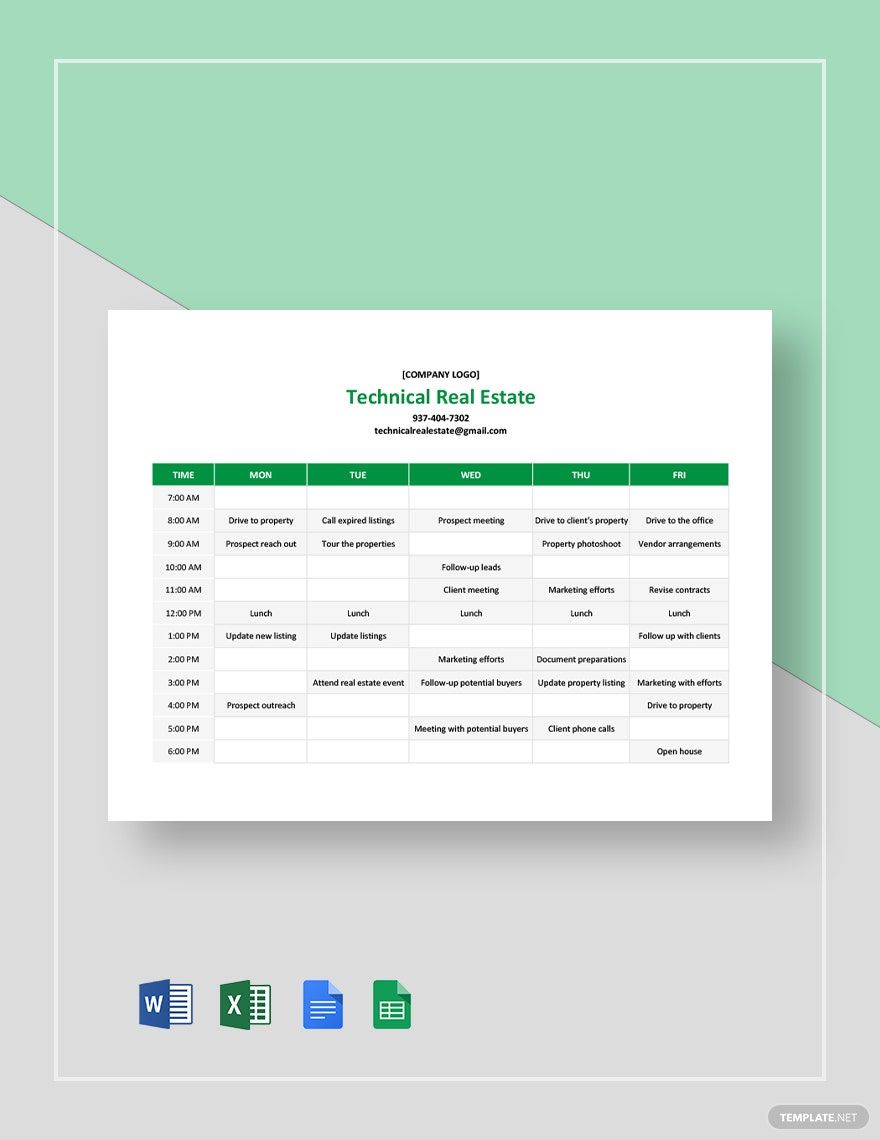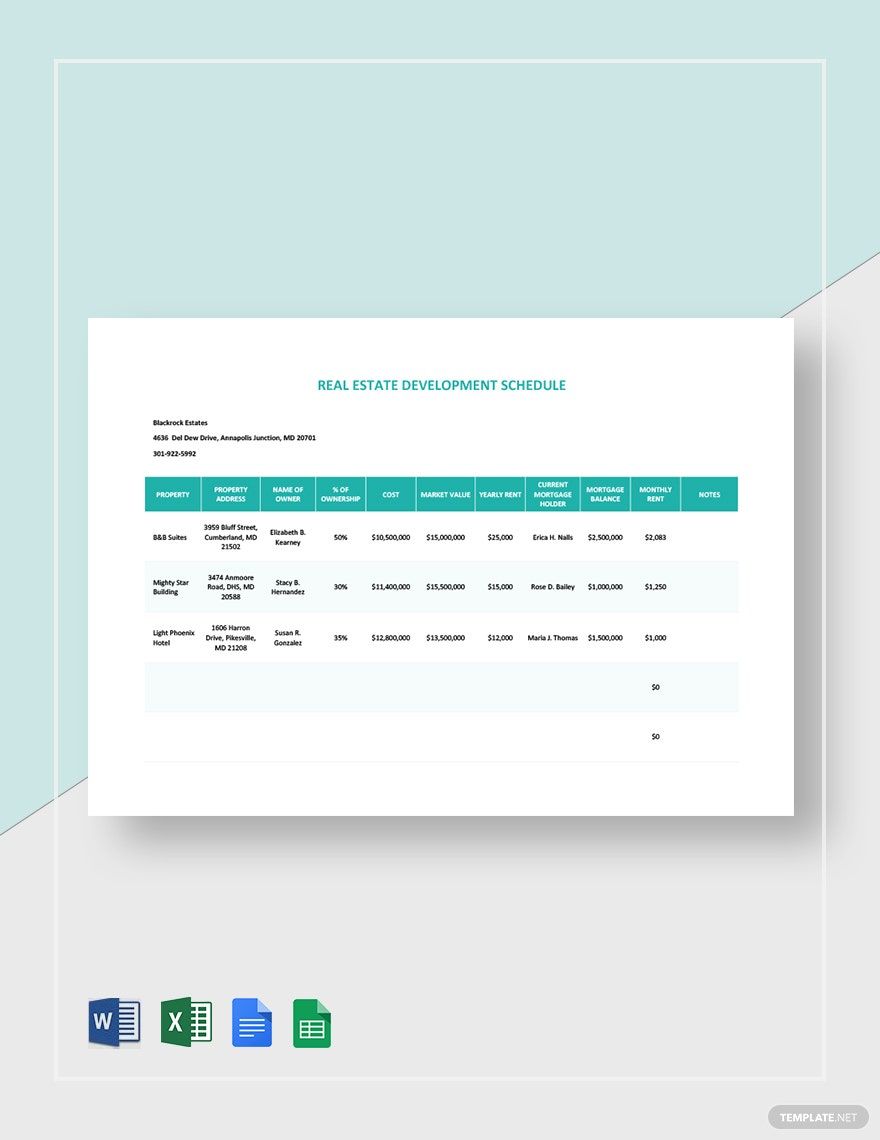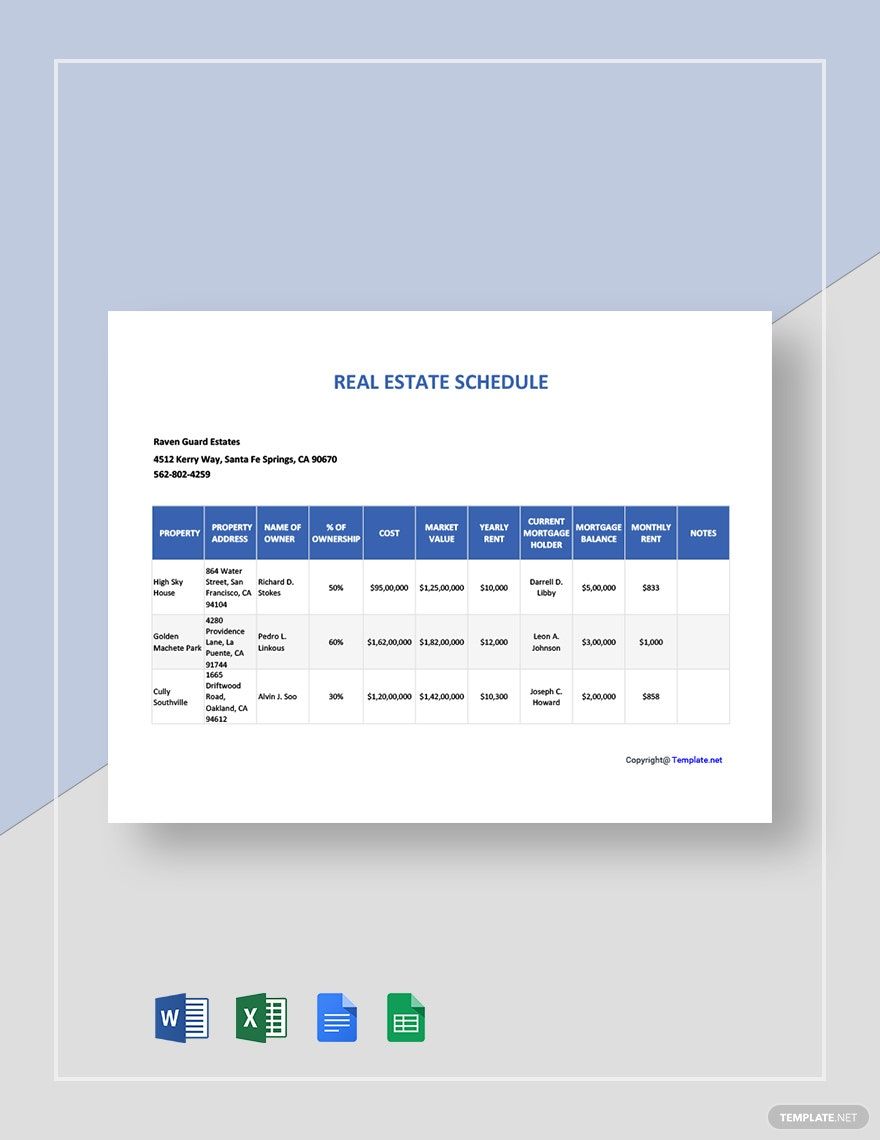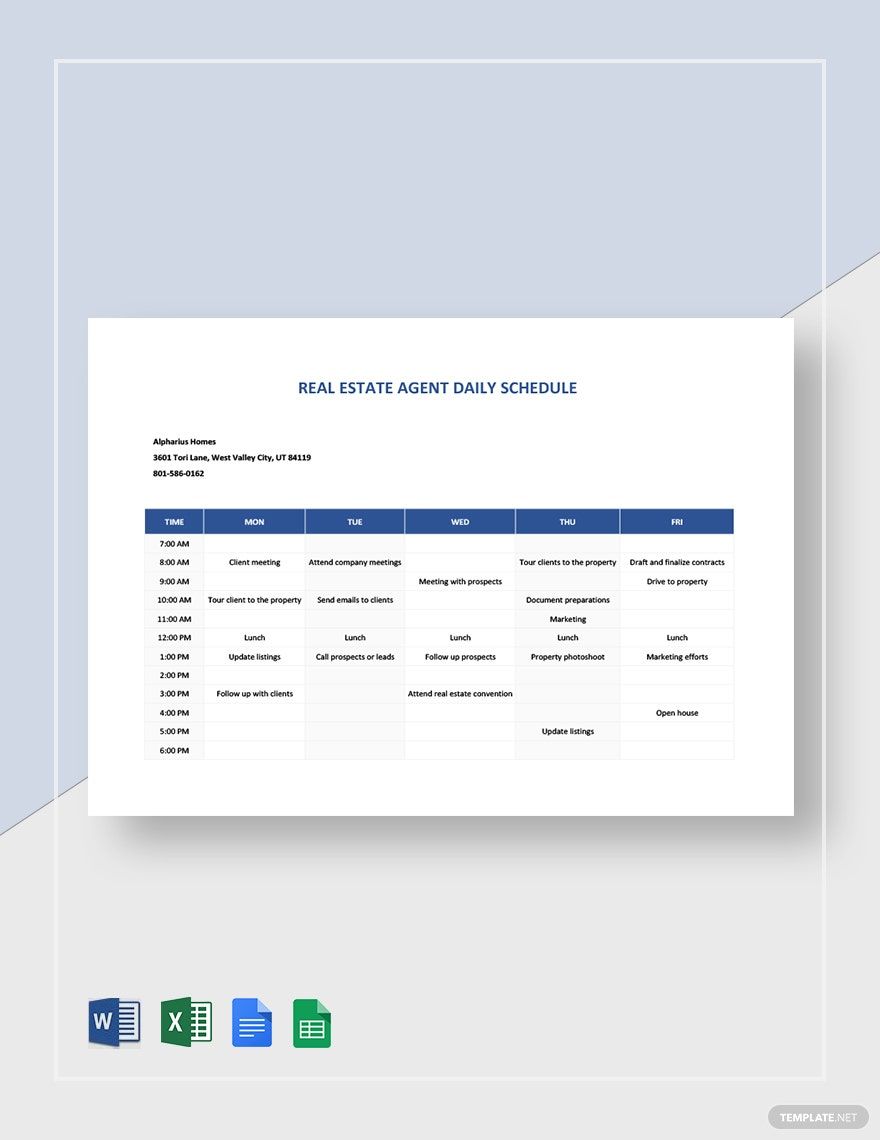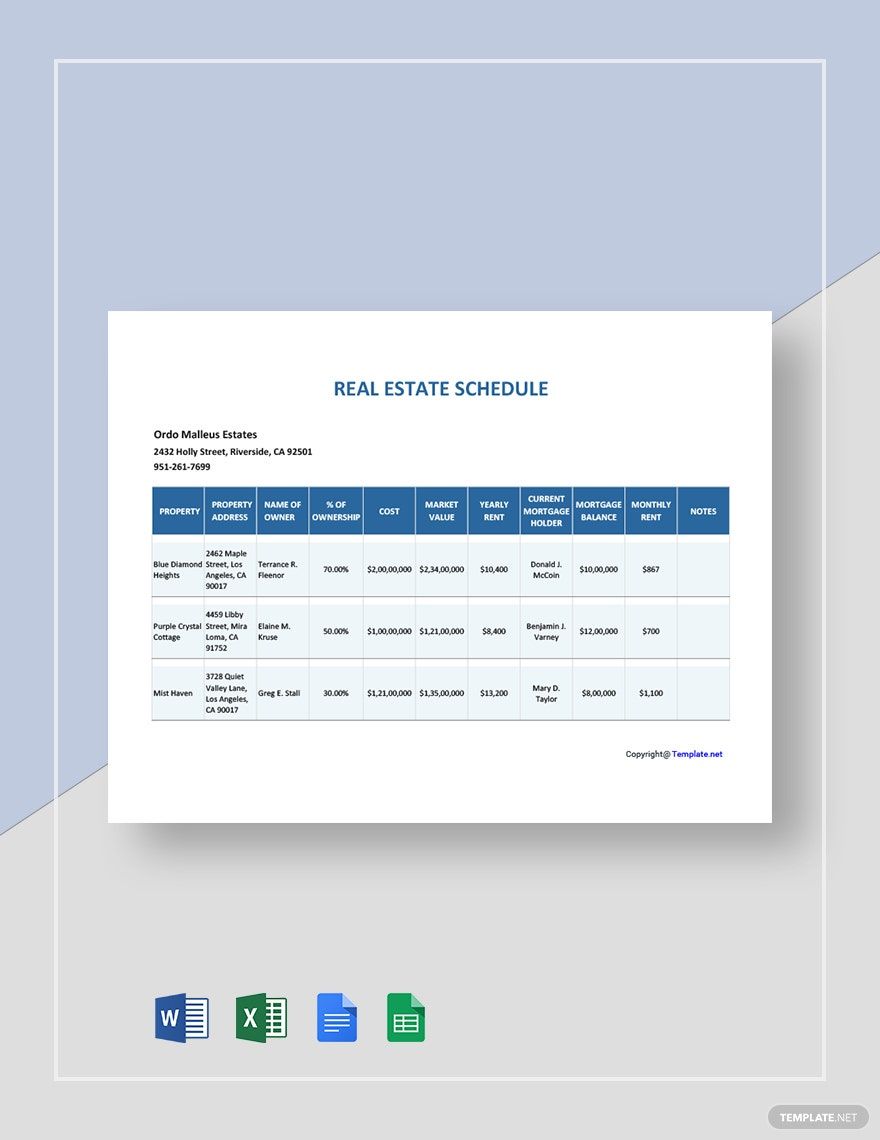In the realm of real estate businesses, a good deal of time and dedication is a must to gain success. To achieve this, a key aspect to consider is being organized with your work, whether you're a property business owner or a realtor agent. Allow us to help you out with our professional Real Estate Schedule Templates. These templates are easily editable and printable and come with effective and relevant content. Don't delay the possibility of an organized day any further--effectively manage pricing, income, commissions, and more with our 100% customizable real estate samples. Subscribe now and get started!
How to Make a Real Estate Schedule?
A schedule is a time-based system used in planning and monitoring tasks, usually printed as a chart or infographic. As explained by The Balance, the real estate industry has a significant effect on the economy, especially in the US. Therefore, a schedule is necessary for keeping up with the demands of real estate work, be it for planning out a condo marketing project or monitoring payments for any owned property.
However, if you’re having some trouble with creating a physical schedule, then read through our tips (below), and you’ll be all set!
1. Choose a Suitable Application
Before putting together a tangible schedule sheet, you’ll need a proper processing application that makes the process convenient to go through. Ideally, you’ll want an application containing features that let you insert or work with grid tables. That is why programs like MS Excel, Google Sheets, Google Docs, Apple Numbers, etc. are good picks.
Once you’ve chosen your preferred software, open a new document and then add a fitting title on the page--like “Real Estate Daily Agent Schedule.” After that, sort out how many rows and columns your schedule will need.
2. Plan It
Regarding your residential house real estate schedule’s arrangement, the exact function and purpose of your schedule will determine all that. For example, if you want a weekly format for planning out which agent should clock-in on what day, then you’ll need at least eight (8) columns and a row for each shift segment (plus an extra row on top).
3. Filling the Schedule Sheet
Continuing with our example, label the columns as each day of the week with the left-most column reserved for listing the different shifts’ timespans in their rows. For eg. 6 AM - 12 PM, 12 PM - 6 PM, etc. The vacant cells will be where you input each employee name that comes in on their respective shift and day.
4. Include Other Information
Besides the table itself, it’s a good idea to add other types of information to your schedule chart (and it might even be necessary, depending on your situation). You can include things like your name under the title, official contact information under your name, a signature space in the bottom-right, or the company logo in one of the top-corners.
After going over your work to ensure everything’s in order, your schedule is finally ready to use digitally or as print. If you want further help making a daily, weekly, or monthly schedule for your real estate ventures, then don’t forget to have a look at our Real Estate Schedule Templates!


